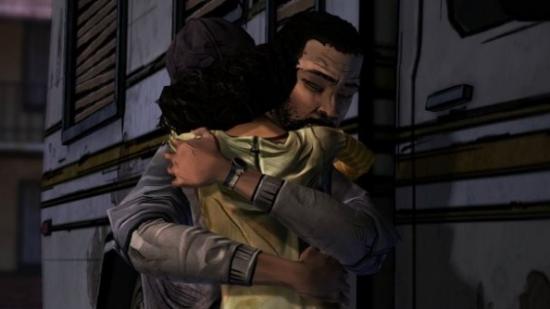When you’re playing games that offer a choice between good and evil, do you encourage the flames of chaos, or make sure everyone is kept happy and safe? For me it’s always been about playing the hero, and statistics reveal I’m in the majority. Take a look at the player choices at the end of each Telltale episode and you’ll find that overall a higher percentage of players do ‘the right thing’.
But why? What is it that compels such a large proportion of us to be good guys in games? When you think about it, taking the more chaotic option would lead to increased peril, drama, and an arguably more entertaining outcome than being a goody-two-shoes. So what is it about our brains that make us more prone to be good guys in games? I turned to behavioural science to find answers.
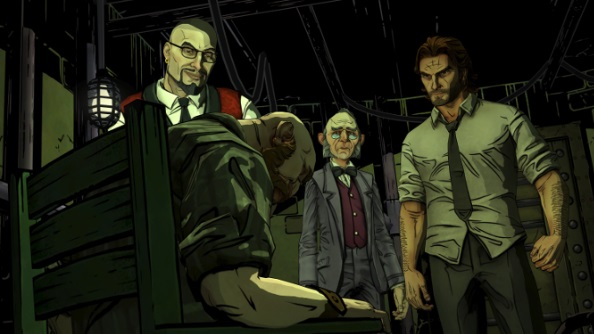
The reason for our choices is actually pretty simple: it’s down to elements of society that have been coded into our brains over our lifetimes. When you look at RPGs or other adventures that give you agency, the developers put a massive amount of effort into world building and creating a society of people. People who can judge you. “Decision making, including moral choice, occurs within social contexts, and the gaming context is no different in this regard,” explains Dr Linda Kaye, Psychology lecturer from Edge Hill University. “When you add an element of social comparison of choices, this adds an element of accountability of choice. This may therefore be one factor which explains why players often choose the noble/good option: so as not to look unfavourable by their peers.”
The most obvious demonstration of this comes in the form of Telltale’s many games, all which have a cast of believable characters constantly ready to “remember that”. The fact that Telltale put so much effort into creating three-dimensional characters in games like The Walking Dead and The Wolf Among Us means we see them as peers, and thus would not want to upset them. You wouldn’t want to risk being shunned from the group of survivors in The Walking Dead’s zombie apocalypse now, would you?
“Other people have a key role in the way we behave, either in the way they interact directly with us, or even through a mere social presence or audience effect. Therefore when these sorts of experiences are integrated within the design of game environments (either in the game world itself or the wider community) these social elements will play a role in our behaviours in these contexts,” adds Kaye. “This might therefore not be our natural instinct or inherent motive, but instead be a product of our social construction of behaviour in an inherently social world.”
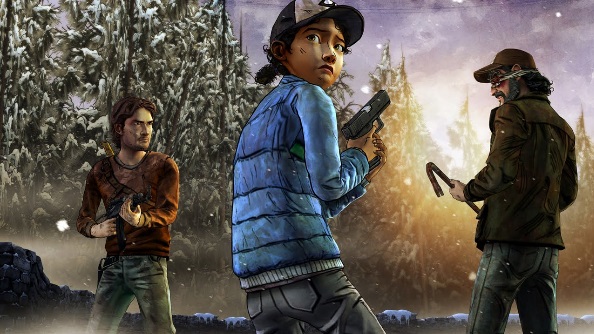
Community outside the game’s world could play a part, too. “I suspect that people are sometimes concerned about impression management when deciding to be good or evil,” muses games psychologist Jamie Madigan. “This may be particularly true when they know that their choices are going to be reported and visible in some way to other players. If you get an achievement for playing a certain way, for example, or if playing a certain way affects what storyline you’re even going to be able to talk about with friends. Even though we all know it’s a game, we may be concerned – even just mildly or subconsciously – that we will be judged.”
Beyond that, Madigan notes that game words are built to reward good player behaviour. “Many quest chains that involve helping or improving relationships between characters may lead to additional powers or resources,” he says. “So it’s partly habit and partly a strategy for mastering the system of a game.”
Role playing seems to be key to our decisions, as not everything coded into our brains translates into gaming behaviour. While we may want our avatars to appear favourable to their in-game peers and thus follow social rules, our “fight or flight” instincts don’t carry over into the virtual world. So when we’re presented with conflict in game, we don’t shy away from it because we see it as a threat. “Although evolutionarily, we are programmed to respond instinctively to danger, I don’t think this mechanism operates as such in the virtual world,” says Kaye. “We recognise gaming as a play activity and not a ‘real world’ experience, so are protected from responding in this instinctive way when making conscious decisions, such as moral ones in games.”
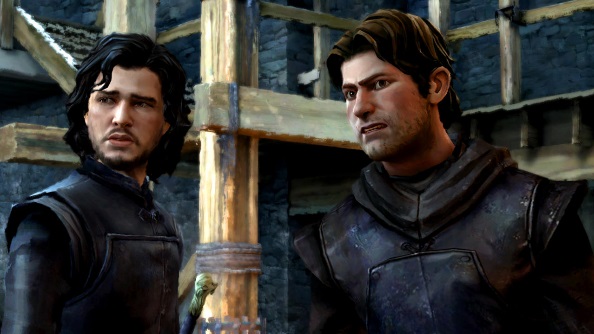
If by now you’re feeling a bit on the guilty side because you know you did all those nasty things in games on purpose, then don’t worry: you’re (probably) not a sociopath. Humans are all unique, and we all have various traits that make up our personalities. Who we are as a person impacts how we play. “Some people who are more inclined towards risk-taking, sensation-seeking, are more impulsive and less conscientious, for example, would be more likely to engage in more dangerous pursuits, and I could envisage this to translate into gaming too,” explains Kaye when asked about the smaller percentage of players who opt to take the ‘evil’ path.
When it comes to making the right choices in games, some of us are so determined to perfect the hero’s journey that we’ll backtrack to earlier saves if it turns out our choices have lead to less-than-desirable consequences. Unlike spur-of-the-moment choices like Telltale’s ticking-timer options, this kind of behaviour is down to our wish for control rather than any form of environmental pressure to get things right. “A sense of empowerment which virtual experiences such as gaming can bring, can be a powerful motivation in itself for people engaging in these activities,” reveals Kaye. “Gaming experiences which allow greater freedom of choice, and player empowerment provide opportunities which our real world lives cannot provide so readily. Therefore, players’ opportunities to ‘change fate’ through their own choices and actions can provide a sense of ownership, as well as accountability which I can envisage is very gratifying.”
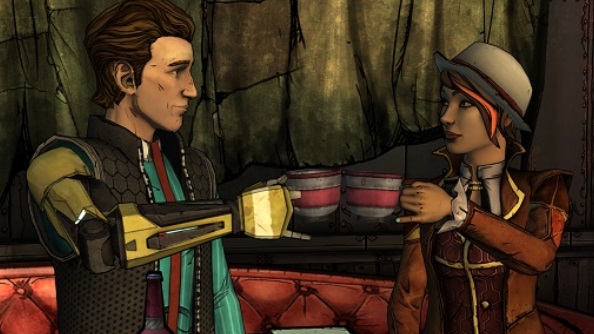
Games like The Walking Dead or The Witcher often only reveal the consequences of our actions hours after we’ve made a key decision, so wanting to take command of our fates is understandable. But for the moment of those decisions, when a time bar is quickly decreasing on screen and characters are staring at us, demanding actions, it’s our societal conditioning that takes over. And that’s a massive testament to game developers: that they are able to make game worlds so realistic that our understanding of how we should behave around real people translates directly into our game behaviour.
These characters may be nothing more than digital images, lines of code, and recorded dialogue, but for the time we spend with them, we react as if they were real. And that’s kind of amazing.
Do you find yourself always drawn to being the hero in games, or are you happy to cause chaos everywhere you walk? Let us know in the comments. And if you’re interested in the psychology of games, you can help Dr Linda Kaye out in her studies with this MMO survey.
